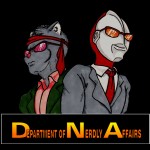
Welcome Operatives to the Department of Nerdly Affairs, tonight your hosts Rob Paterson and Don Chisholm discuss how audience expectations shape how people create media and react to it. In addition, we discuss Jack Campbell’s The Lost Fleet series, what really makes a story “Adult”, why Hollywood can’t get Wonder Woman right, and International Comics culture. All that, plus the Combat Sign Wave and Phantom Lady’s incredible cleavage are waiting for you in this week’s episode of The Department of Nerdly Affairs.
Closing Music: Ode to Joy performed by Oliver Eckelt
Things Discussed:
The Lost Fleet by Jack Campbell
The Magicians TV Series (video)
Naruto/Bleach/One Piece Background Comparison
Cyborg 009 vs. Devilman Movie (video)
Justice League vs. The Avengers
Wonder Woman TV (2011) (video)
International Iron Man (Okay, so it was 25 countries.)
Super Robot Red Baron (video)
Inspector Bicycle (video)

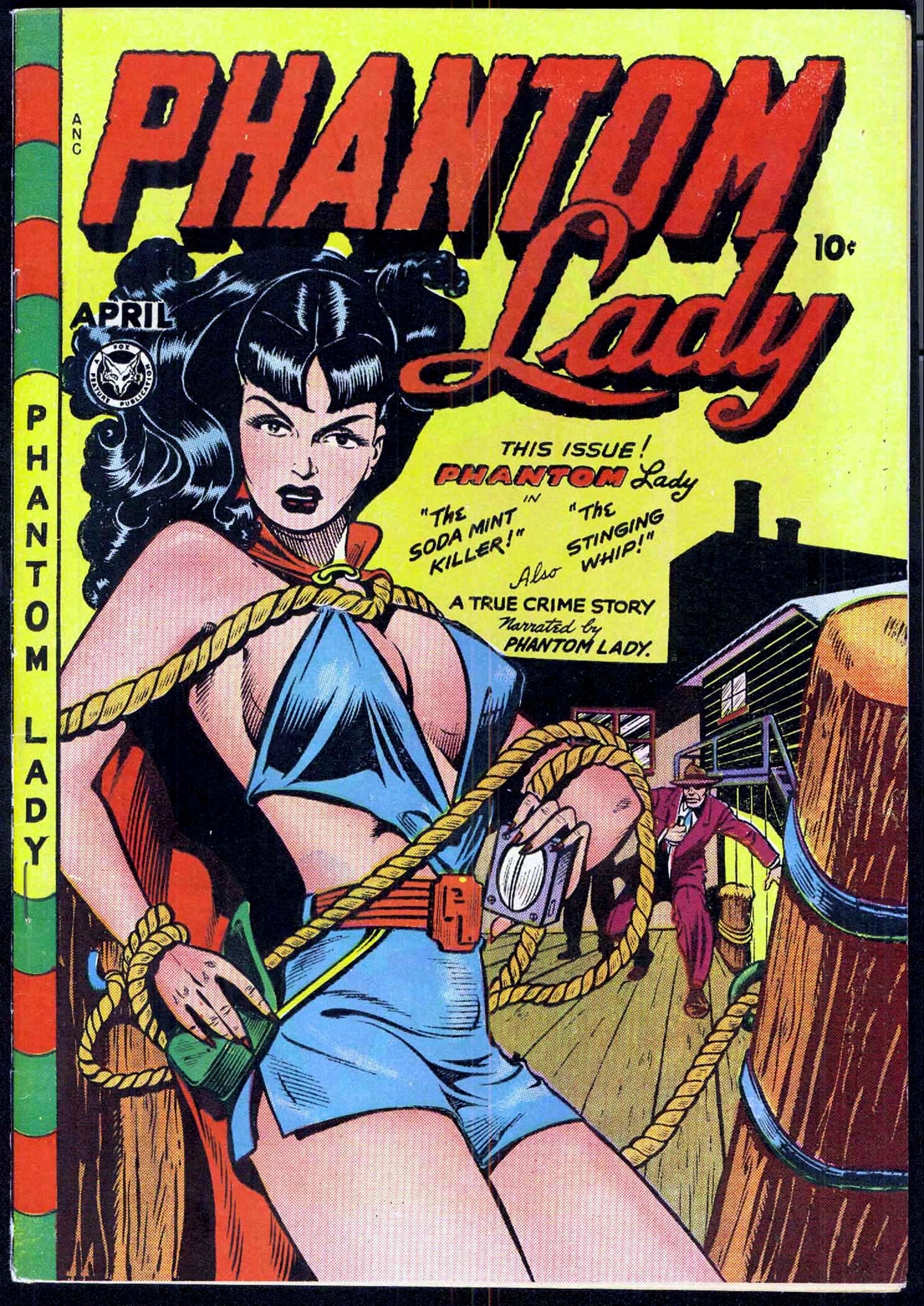
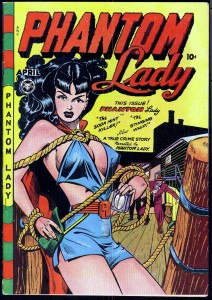

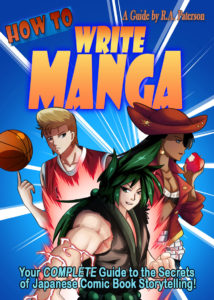
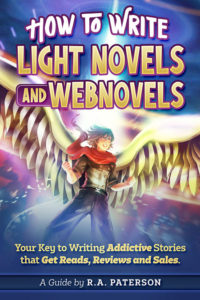
Thanks for another interesting episode guys!
A couple of things that stuck out for me.
1. Yes Phantom Lady was all about telling mystery stories, but frankly early superhero stories were all that. The Sandman was a sleuth with a sleeping gas gun. The Spirit, Crimson Avenger, The Shadow, hell even Batman spent most of his time being “the world’s greatest detective.” Street level heroes tended to be those kinds of stories. So we don’t have to be too hard on the creators of Phantom Lady (they did after all bring the cleavage and all the boys to the yard)
2. The last Superman movie was the best Superman movie ever made. People can complain until the cows come home, but it was. It wasn’t perfect, but it was actually the most “Superman” story there was for the modern age. Anything else would have been a flop. I challenge anyone to come up with any of the previous movies released to imagine them coming out for a modern audience and do better. They would have all flopped. Superheroes are mythic heroes (See point #3) and they need to be remade into the Age they are in to be effective.
3. I further challenge the idea that the mundane equals adult. I would find Damage Control quirky but not interesting as much today as I did as a kid. It’s an interesting idea, but its not really superheroes. As Frank Miller says “There are three gods in the DC universe- Superman, Batman, and Wonder Woman and everyone else are demi-gods”. The interesting part in that sentence is the “everyone else”. We don’t care about how Jason and the Argonauts actually runs the day-to-day maintenance of his ship. That’s a genre question, not a maturity question. Just like Watchmen has a pile of adult themes not in the form of violence or sex perhaps but in the forms of archetypal storytelling and philosophical discourse. Just like he does in some of his other works. He tells adult stories in the genre and medium of the mythic super hero tale, not the modern fiction novel.
4. Try out Darwyn Cook’s “Before Watchmen”. I saw in the library on the weekend and am giving it a look through. I like his storytelling chops and he does a good job of bringing back the Minute Men and having a deeper understanding of who they are through the ages before we get to Alan Moore’s tale.
Keep it up. Great stuff!
J
>Phantom Lady was all about telling mystery stories, but frankly early superhero stories were all that.
You’re absolutely right. There WAS a small cadre of superhero superheroes back in the day, but a lot of them were pulp detective types. You can see…. right around WW2…. that there was a shift towards the more outlandish and powerful characters. A lot of the older men of mystery types got new abilities too. (Of course, “continuity” wasn’t as big a deal back then.)
>we don’t have to be too hard on the creators of Phantom Lady
Hee heee…. I actually really like the old Phantom Lady comics, especially the earlier ones. I like a lot of the old Golden Age heroes; but it is kinda funny to see the weird tweaks they’d add to the formula every so often. Especially compared to today, when stuff like that would cheese a lot of readers off to no end.
>The last Superman movie was the best Superman movie ever made.
You’re one of the few people I’ve seen defend this film, and I gotta say I can kind of agree. It’s the first time I’ve ever seen anyone justify Lois Lane. (She’s the only one who was there for Supes in the end.) I don’t know if I’d say it was the BEST; it was kinda slow…. but then again, so were the 80’s Superman films.
What it needed was a big cellophane “S.” Yeah; that’d make it better!
>I further challenge the idea that the mundane equals adult.
I accept your challenge! *cue dramatic music* It’s not that I think mundane inherently equals adult; but the idea of “adult” is one that takes into account more circumstance than usual. So, Damage Control I would consider “adult” (I hate that term, but can’t think of a better one) because it takes into account the consequences of a superhero world that are normally glossed over. Yeah, it’s a genre/setting thing, but that’s where an adult mind goes; the bigger picture. Adults think like that ‘cos they have to function in the bigger world. Teens and kids can accept that the damage just sort of goes away because a lot of stuff during their lives just sort of happens. (So, kids don’t understand jobs and money so much because they don’t have any firsthand knowledge of the process. Hence the “you think money grows on trees?” speech we all heard growing up.) For me, it’s bringing those complications into the story that denote maturity. Not just setting wise though; but character wise too.
> Just like Watchmen has a pile of adult themes not in the form of violence or sex perhaps but in the forms of archetypal storytelling and philosophical discourse.
Hmmmm…. Watchmen is a sticking point for me, since I don’t consider it particularly mature. Sure, it deals with more mature ideas than most superhero books did/do; but it did it in immature ways. For instance, politics. It’s there, but it’s cartoony. Best example; the two magazines that keep popping up. The “New Frontiersman” is a stereotypical, rabid right wing publication. The other (which I don’t remember the name of) stereotypically hedonistically left wing. (As shown by the interview with Ozymandias, where he’s explaining his plans and the reporter just wants to know if he’s getting any.) Each side is presented as an either/or, with no sense of nuance. EVERYTHING in the book is either/or, with very little grey.
….which doesn’t mean I’m saying it’s a bad book. It’s well worth reading. People said it was a deconstruction of the superhero, but I saw it going the other way. It’s a superhero story where the plots and points are taken much closer to where they SHOULD go in every other story.
> I saw in the library on the weekend and am giving it a look through.
I’m kinda curious about this one. I know a lot of folks who hated it; but that was out of principle, none of them actually read it.
*sigh* The worst part of getting old is that your peers get old, and you have to spend so much time listening to their geezerisms….
Don C.